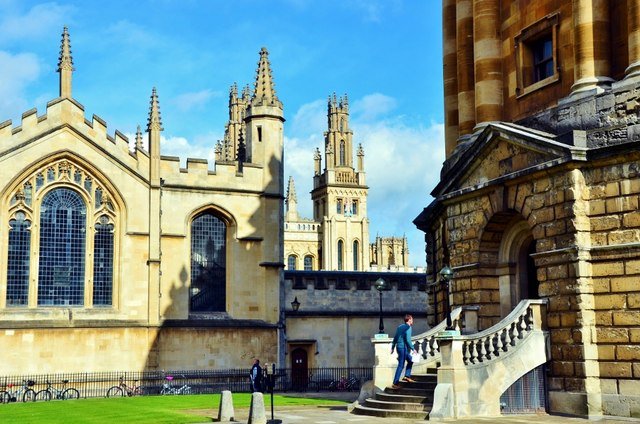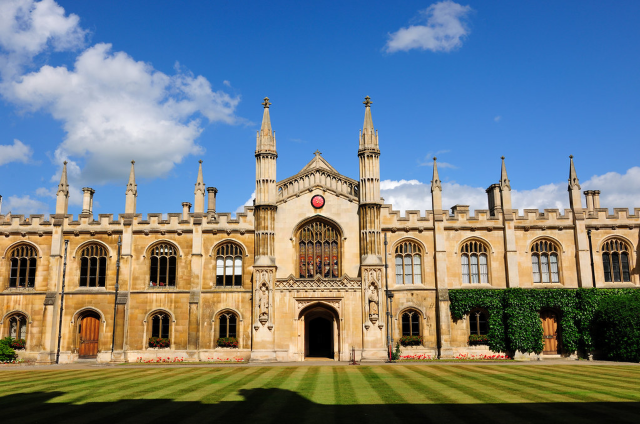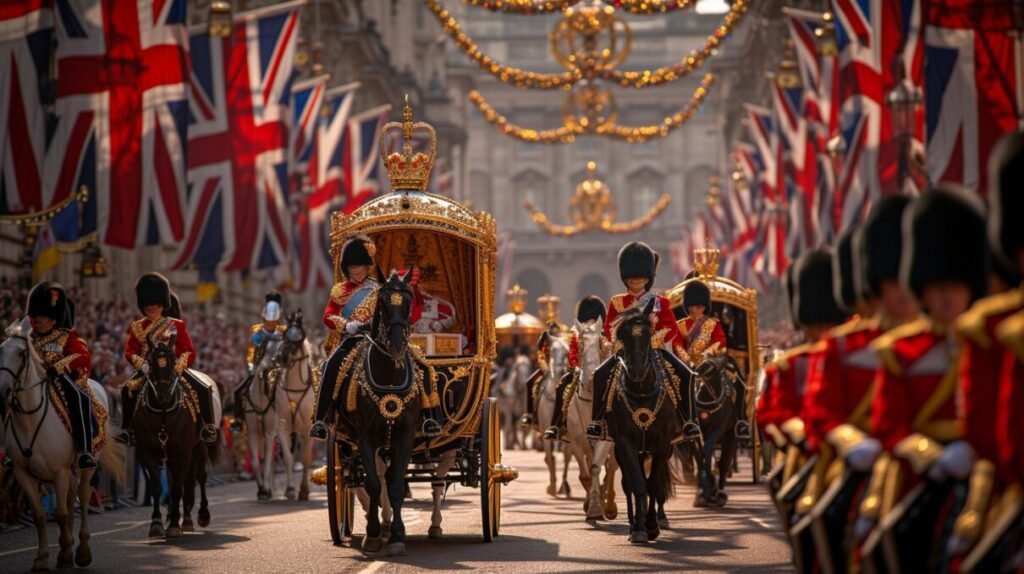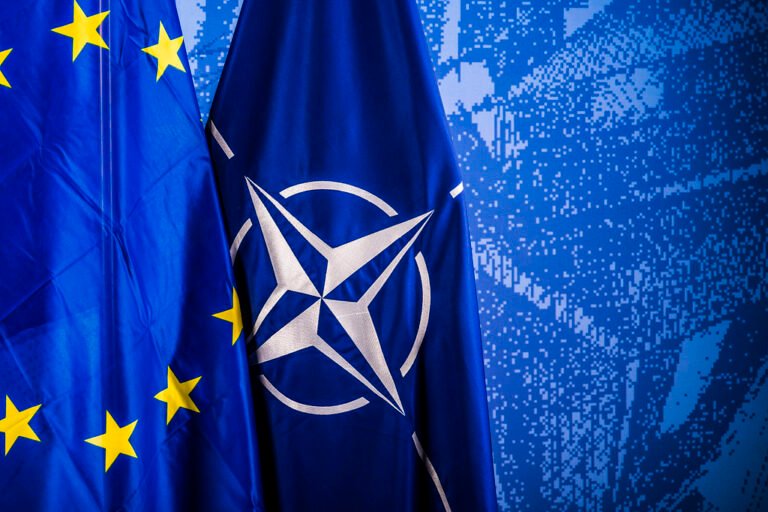Modern Britain is a country of contrasts and complexities, where the past and future intertwine to form a dynamic present. The nation has experienced immense change over the centuries, advancing from a worldwide realm to a modern, powerful state. Today, Britain stands as a lighthouse of innovation, culture, and global diplomacy, continually forming and being formed by the world around it. But what exactly characterizes modern Britain? How has this island nation explored the tides of change to maintain its significance on the global stage? Let’s take a journey through the political, financial, social, and cultural landscapes of modern Britain to get its current role in the world.
Historical Context
To know about modern Britain, it’s necessary to look back at its history. Britain’s transformation from a colonial domain to an advanced state is one of the foremost noteworthy shifts in worldwide history. The British Empire, once the biggest empire in the world which has left an enduring succession in worldwide politics, culture, and economics. However, the post-war period marked the start of decolonization, leading to the rise of free countries across Africa, Asia, and the Caribbean. This action was not only a political one but also a social and cultural resurrection, as Britain started to rethink its identity in a post-imperial world.
Political Evolution
The political scene of modern Britain has been formed by centuries of evolution, from the foundation of the parliamentary framework to the complexities of contemporary administration. The improvement of Britain’s political institutions laid the basis for one of the world’s oldest democracies. However, recent events, such as Brexit, have significantly affected British politics. The decision to leave the European Union marked a turning point in the country’s history, leading to shifts in domestic policy and administration. The consequence of Brexit proceeds to impact political discourse, with continuous debates about sovereignty, immigration, and financial strategy.
Economic Transformation
Britain’s economy has experienced significant changes, from the Industrial Revolution that made it the world’s manufacturing powerhouse to the advanced age, where it plays a key part in worldwide funding and innovation. London remains a driving worldwide monetary center, attracting investment and talent from around the world. However, the post-Brexit economy presents both challenges and openings. The UK is rethinking its trade relationships and financial approaches in a rapidly changing worldwide environment, aiming to maintain its competitive edge while tending to domestic concerns like inequality and territorial disparities.
Social Change
Socially, modern Britain could be a mosaic of cultures, languages, and traditions. The advancement of British society, from a rigid class structure to a more fluid and different one, reflects broader worldwide patterns. Immigration has played a noteworthy part in forming modern British society, contributing to its multiculturalism. Nowadays, cities like London, Birmingham, and Manchester are dynamic softening pots of cultures, with impacts from each corner of the globe. Education has been a vital factor in social mobility, giving opportunities for people from different backgrounds to succeed in various fields.
Technological Innovation
Britain’s legacy of advancement spans from the steam engine to the World Wide Web, placing it at the upper position of technological evolution. In the 21st century, the UK leftovers at the cutting edge of technology, particularly in sectors like fintech, artificial intelligence, and biotechnology. The progress of the technology industry has upheld Britain as a notable player in the global digital economy. Also, the UK is making strides in green technology and sustainability, with speculations in renewable energy and activities pointed at decreasing carbon outflows. These developments are not only significant for the environment but also for keeping up Britain’s status as a worldwide leader in technology.
Cultural Influence
British culture has long had a worldwide impact, from literature and theater to music and fashion. The reach of British pop culture, especially through icons Like the Beatles, James Bond, and Harry Potter, is unparalleled. In literature, British authors proceed to be celebrated around the world, whereas the country’s media landscape remains influential through networks like the BBC. Additionally, British fashion and design are synonymous with imagination and innovation, influencing trends far beyond its borders. This cultural impact may be a testament to Britain’s capacity to adjust and advance, continually renewing its inventive energies to stay relevant on the global stage.


Global Diplomacy and Defense
Britain’s role in worldwide diplomacy and defense has been essential, particularly through its cooperation with international organizations like the United Nations and NATO. The “special relationship” with the United States remains a foundation of British foreign policy, reflecting shared values and key interface. Britain’s defense procedure has also evolved, focusing on modern dangers such as cyber warfare and terrorism, while maintaining a solid military presence globally. This combination of diplomatic impact and military capability guarantees that Britain remains a critical player in worldwide issues.
Environmental Leadership
In recent years, Britain has risen as a pioneer in environmental sustainability, championing endeavors to combat climate change. The UK was the first major economy to enact net-zero carbon outflows by 2050, setting a point of reference for other countries. Key environmental approaches, such as the promotion of renewable energy and the phasing out of coal, reflect Britain’s commitment to a sustainable future. As the world hooks with the impacts of climate change, Britain’s approach to environmental issues will likely play a significant part in forming worldwide endeavors to secure the planet.
Healthcare and Innovation
The National Health Service (NHS) is one of the most cherished institutions in England, which is giving healthcare to millions. Though the institution has economic pressures and understaffing challenges, it continues to symbolize the nation’s dedication to universal healthcare. Also, Britain’s commitments to worldwide health expand beyond its borders, with leading research in regions like vaccines, genomics, and biotechnology. British colleges and research institutions are at the forefront of medical advancement, contributing to breakthroughs that have a worldwide impact.
Education and Research
Britain’s education framework is famous for its combination of tradition and advancement. From Famous universities like Oxford and Cambridge to modern research institutions, the UK plays a noteworthy part in worldwide education. British universities attract students and researchers from around the world, offering a culture of intellectual exchange and collaboration. This universal viewpoint is imperative for keeping up Britain’s position as a pioneer in research and improvement, with significant contributions to areas such as science, engineering, and the humanities.


British Identity in the 21st Century
The question of British identity is progressively complex, as the country hooks with its chronicled legacy and modern challenges. The pressure between convention and innovation is obvious in debates over national identity, migration, and regionalism. Devolution has included another layer to this complexity, with Scotland, Wales, and Northern Ireland each stating their distinct identities within the United Kingdom. In the meantime, the future of the monarchy remains a topic of discussion, especially as younger generations address its relevance in a modern, democratic society.
Modern British Challenges
Modern Britain faces a range of challenges, from financial disparity to political polarization. Financial disparities between locales, especially between the affluent South and the struggling North, are a source of continuous concern. Political polarization, exacerbated by Brexit, has also led to social pressures and divisions. In addition, Britain is still coming to terms with its colonial past, as calls for reparations and acknowledgment of chronicled injustices grow louder. Tending to these challenges requires a nuanced approach that equalizations the require for progress with respect for Britain’s diverse and complex history.
The Future of Britain
Looking ahead, the future of Britain is one of both promise and instability. As the world undergoes rapid changes, Britain’s capacity to adjust will be pivotal in determining its place in the worldwide order. The UK’s focus on advancement, education, and environmental sustainability positions it well to handle future challenges. However, the nation must also address domestic issues such as disparity and social cohesion to construct a more comprehensive and affluent society. The vision for modern Britain is one of a forward-looking country, sure in its identity and committed to playing a positive part on the worldwide stage.
Conclusion
Modern Britain is a country in a move, exploring the complexities of a changing world while remaining genuine to its core values. From political advancement and financial change to social impact and technological advancement, Britain’s journey is one of steady adjustment and versatility. As the nation faces new challenges and opportunities, its capacity to enhance and lead will determine its future role in the worldwide community. Eventually, Britain’s journey through change, development, and worldwide impact is far from over, with the promise of an exciting and dynamic future ahead.
FAQs
How has Brexit influenced Britain’s global role?
Brexit has redefined Britain’s relationship with the European Union and the rest of the world. It has driven new trade agreements, changes in migration approach, and shifts in political alliances, all of which proceed to shape Britain’s global influence.
What are the major challenges facing modern Britain?
Major challenges include financial disparity, political polarization, social cohesion, and tending to the legacy of colonialism. Furthermore, Britain faces the continuous task of exploring its post-Brexit future and reacting to global issues such as climate change.
How does Britain contribute to global innovation?
Britain is a pioneer in areas such as innovation, healthcare, and education. The UK’s role in worldwide advancement includes progressions in artificial intelligence, biotechnology, and green innovation, as well as its world-famous research institutions.
What is the future of the British monarchy?
The future of the British government may be a subject of debate, with dialogs around its relevance and part in modern society. While the government remains a symbol of convention, questions about its future are progressively noticeable, especially among younger generations.
How is Britain addressing climate change?
Britain is tending to climate change through approaches pointed at diminishing carbon outflows, promoting renewable energy, and driving international endeavors to combat global warming. The UK’s commitment to accomplishing net-zero outflows by 2050 is a key portion of its environmental strategy.








